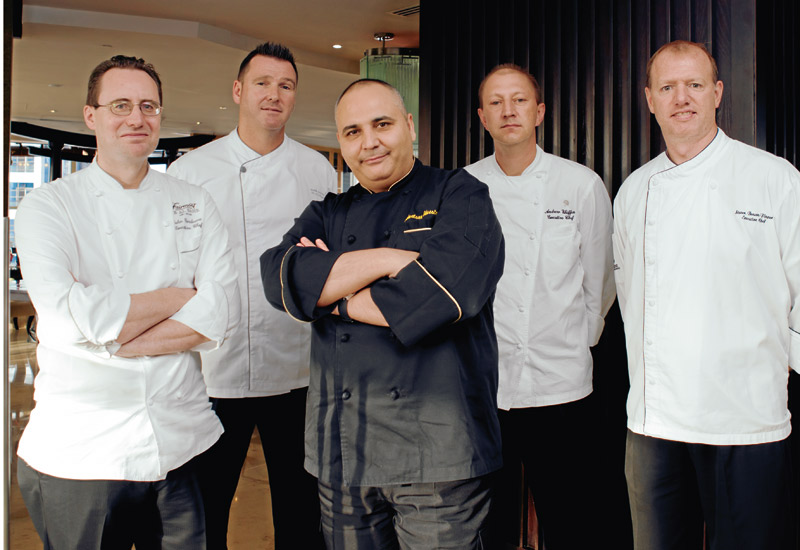What sort of markups do you work on?
JC: I think we all offer great value for money in the product we serve.
MP: If you talk about profitability, let’s talk about increases. Nobody around the table has increased their prices in the last 12 months. With inflation, the product is costing us more, but our prices aren’t increasing.
You need to be a very frugal operator today. If you go and buy a car what’s the first thing you do? You check your bank account, you aren’t going to buy a Maserati if you can only afford a Yaris.

| Advertisement |
Then you watch what’s coming in because we have fresh produce coming in every day. If I ask how much product you hold, meaning if food stopped today how many days until your kitchen ran out food, what would you say?
ALL: (Between one and three days).
MP: One point five for me. We are not holding product, because product is money, and it’s fresh.
If we control ourselves, well we are fine because we don’t hold a lot of product. Rule of thumb is you should be holding 5% of your total revenue.
When it comes to bottom line profitability we might all have different ones, but when it comes to running and managing the product philosophy is very similar.
Now it’s about added value, what we are offering to our customers at a brunch for the price they pay; what additional stations, what experiences can we offer?
JC: It’s all about the experience, you need to create a loyal clientele and create an experience for them to come back and there needs to be value. We are all professionals and we all do the same jobs really, it’s just that our owners and companies expect different things. It’s not rocket science, but it is challenging in the environment that’s for sure.
SBF: You need to offload your knowledge and teach the chefs de cuisines what Mark was saying. Let them understand that this beef that comes from America is not cheap, it costs money and they have to make money out of that tenderloin.
AW: We are like parents.
MP: I always take a leaf out of the book Good to Great by Jim Collins. There is a part that talks about Lou Holtz, a famous American football coach, who talks about three types of individuals within a team. The first group are the ones that you give them what they need to do and they get it straight away.
The second group of people sort of get it, takes a bit of time to get hold of it, but then they get it and move forward. The last group doesn’t get it, isn’t interested and has no idea whatsoever.
He said he used to spend 80% of his time working on the third category because he thought they needed the most help — that’s wrong, it’s wrong in management, it’s wrong in leadership.
He spends most of his time with the top two and mainly with the top group, because when you work with a team that gets it they go on and things get better. Then you build a team with longevity, we do the same thing in our business and we have to do it and it doesn’t stop.









 Search our database of more than 2,700 industry companies
Search our database of more than 2,700 industry companies










Aug 4, 2011 , United Arab Emirates
Just one example of recognition of the chefs role came to light in the 1990's when a very large hotel company changed their Assistant Manager policy and decided to recruit their Hotel Managers from Heads of Department at operations level, (namely Head chefs, Housekeeping, Restaurant, Reception). ...